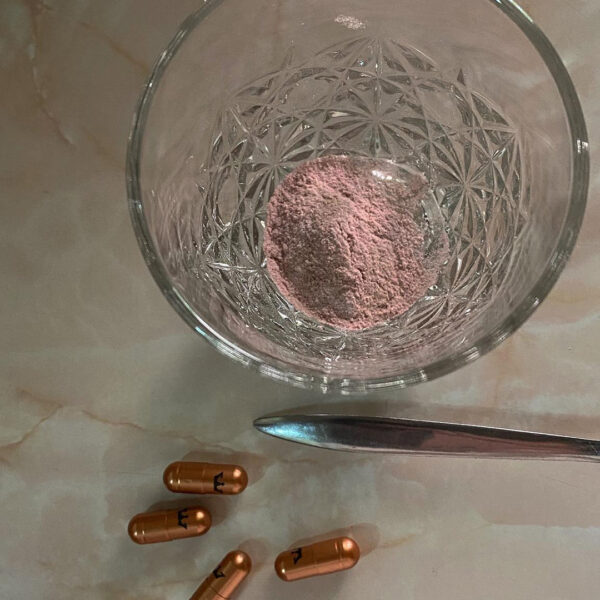“Longevity” is the word on everyone’s lips these days. We all want to live not just longer lives but healthier ones, and one way we can do that is to look at what—and how—we eat.
We tapped Dr. Kien Vuu, founder of Vuu MD Performance and Longevity and author of Thrive State. “The number one ‘golden rule’ of healthy eating is to eat foods that are organic, whole, minimally processed, GMO-free, and do not contain additives or preservatives,” he says.
But, like many things, this is easier said than done. So how can we actually implement this into our daily lives? Here are the rest of his golden rules of eating for longevity, along with actionable steps to take.
It’s important to note that “there is no one-size-fits-all eating style. Everyone’s bodies are different and require different nutrient ratios, depending on their lifestyles and health goals,” Dr. Vuu says. “Try adapting your diet with a simple change to start, such as cutting out sugar or processed foods.”
In other words, don’t feel like you have to take on all these changes at once. Slow and steady wins the race.
Why it’s important: “Your gut microbiome affects your brain health, immune health, psychological well-being, and likelihood of getting a chronic disease,” Dr. Vuu says. “Eating a wide variety of foods and probiotic-rich foods is essential for gut health. Whole foods, particularly non-starchy vegetables and low-glycemic fruits, are foundational for optimal health. They offer a spectrum of nutrients, fiber, and antioxidants, which are crucial for maintaining a balanced diet and preventing chronic diseases.”
Pro tip: “Think ‘eat the rainbow’ to ensure you’re getting a wide variety of nutrients,” he advises. “Swap out processed snacks for whole food options like nuts or berries.”
Reduce total daily added sugars.
Why it’s important: “Sugars and processed carbohydrates put your cells in a stress/survive state, and they drive diabetes and many chronic diseases. Sugar and refined carbs can spike insulin levels, leading to energy crashes and increased risk of disease,” Dr. Vuu says. He recommends that minimal amounts be consumed, if at all.
Pro tip: “Consider natural sweeteners like dates, coconut sugar, stevia, or monk fruit in moderation,” he says. He also recommends choosing complex carbs, like sweet potato, over refined ones.
Why it’s important: “Healthy fats, such as those from nuts, seeds, olive oil, and fatty fish, are essential for brain health, hormone production, and reducing inflammation,” Dr. Vuu says.
Pro tip: “Use olive oil for salads and avocado oil for cooking at high temperatures,” he says. Also, incorporate fatty fish into your diet two to three times a week, and snack on nuts and seeds.”
Choose clean protein sources.
Why it’s important: “Protein is vital for muscle repair and growth. Opt for grass-fed, pasture-raised, and sustainably harvested sources to avoid hormones, antibiotics, and other contaminants,” he says.
Pro tip: “Incorporate plant-based proteins, like lentils and quinoa, to diversify your protein intake,” he says. “When eating meat, choose smaller portions (four to six ounces) as a side rather than the main dish.”
Why it’s important: “Proper hydration supports every cellular function in the body, yet it’s often overlooked. Drinking enough water, infused with electrolytes when necessary, can enhance overall well-being,” Dr. Vuu says.
Pro tip: “Start your day by drinking a glass of water with lemon and a pinch of Himalayan salt to replenish electrolytes and kickstart your hydration,” he recommends.
If you don't feel great, eliminate.
Why it’s important: “Personalized nutrition recognizes that each individual’s body responds differently to certain foods. Listening to your body and adjusting your diet accordingly can optimize health,” Dr. Vuu says. “Chronic symptoms like bloating, brain fog, poor sleep, poor digestion, skin rashes, mood issues, hormonal issues, and joint pain may be signs of a food sensitivity.”
Pro tip: “Keep a food diary to track how different foods affect your energy, mood, and digestion,” he recommends. “Consider working with a nutritionist for personalized advice, or talk to your doctor about an elimination diet, which can help identify food sensitivities and reset your health.”
Minimize exposure to contaminants.
Why it’s important: “Pesticides, heavy metals, and chemicals can disrupt bodily functions and contribute to disease. Opting for organic and sustainably sourced food can reduce these risks,” he says.
Pro tip: “Wash fruits and vegetables thoroughly, even if they’re organic. When possible, buy organic for high-pesticide-risk foods like strawberries and spinach,” he recommends.
“By integrating these practices into your daily life, you’re not just eating healthily. you’re cultivating a lifestyle that sustains and elevates your health, happiness, and human potential,” Dr. Vuu says.
Shop our daily supplements collection:
The content provided in this article is provided for information purposes only and is not a substitute for professional advice and consultation, including professional medical advice and consultation; it is provided with the understanding that Poosh, LLC (“Poosh”) is not engaged in the provision or rendering of medical advice or services. The opinions and content included in the article are the views of the author only, and Poosh does not endorse or recommend any such content or information, or any product or service mentioned in the article. You understand and agree that Poosh shall not be liable for any claim, loss, or damage arising out of the use of, or reliance upon any content or information in the article.
Up next, be the first to know our weekly content and sign up for our Poosh newsletter.




































